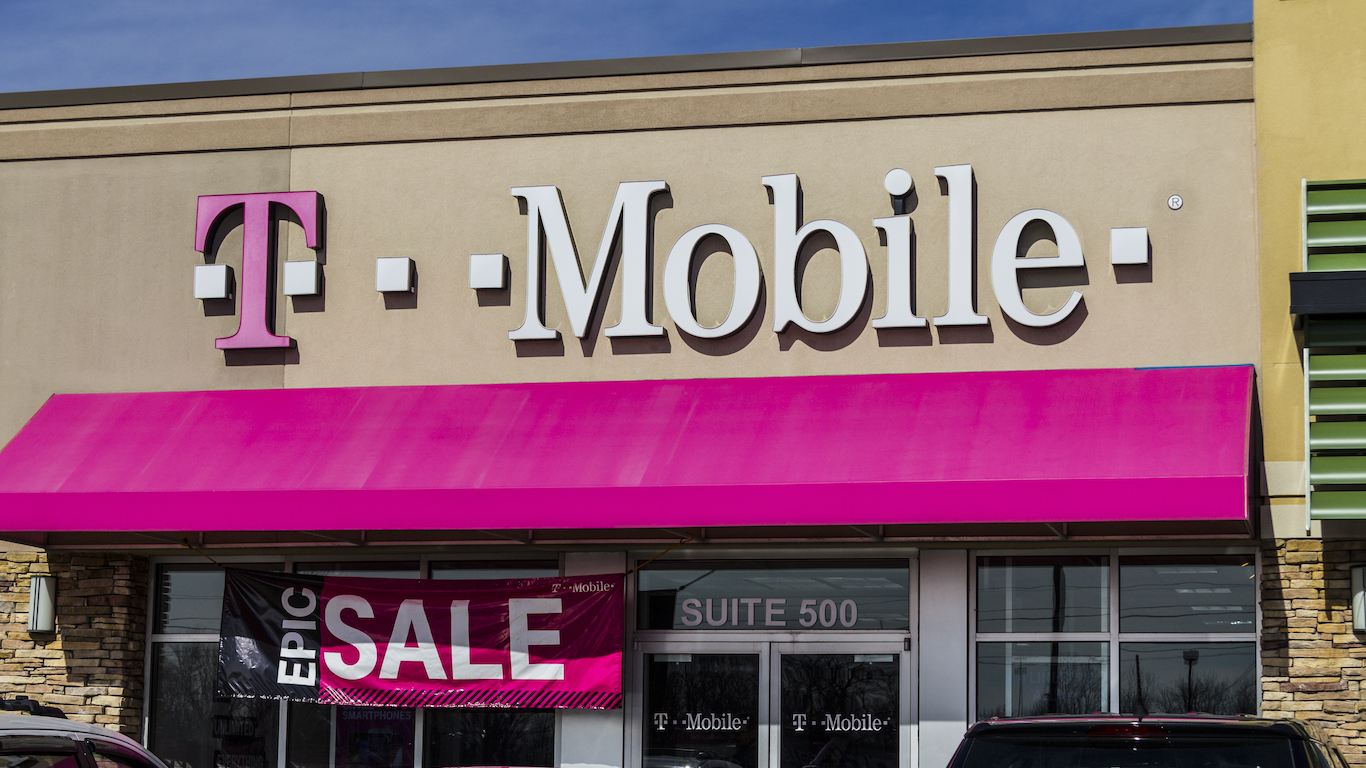Telecom & Wireless
Sprint Merger With T-Mobile Could Harm Workers

Published:
Last Updated:

Sprint Corp. (NYSE: S) and T-Mobile US Inc. (NASDAQ: TMUS) have argued that their combination will create better service. As a matter of fact, the $26 billion deal will make it more likely Americans have access to superfast 5G technology. At the other end of the spectrum is the argument that the deal will cause higher rates and hurt the employees of both companies.
[in-text-ad]
The case was made that the merger of the two telecoms will create thousands of jobs and trigger an investment of $40 billion in the new infrastructure. The job creation argument is thin, and the companies did not offer much support for the claim. At the time of the merger, the companies announced:
From the first day Sprint and T-Mobile combine and every year thereafter, the new company will employ more people in the U.S. than both companies would separately. More than 200,000 people will work on behalf of the combined company in the U.S. at the start. And, the New T-Mobile plans to invest up to $40 billion in its new network and business in the first three years alone, a massive capital outlay that will fuel job growth at the new company and across related sectors. This is 46% more than T-Mobile and Sprint spent combined in the past three years.
Management claimed AT&T, Charter, Comcast and Verizon would need to make investments, which would add more jobs. Management had no proof of that.
The Economic Policy Group has taken a different view:
Our analysis begins with existing research on how much the merger would increase labor market concentration in the U.S. labor markets where both Sprint and T-Mobile are active. That is significant, because concentration of employers is one of the reasons we expect that labor markets are monopsonized as a matter of course. Monopsony power is when employers have power to set wages unilaterally, and workers generally earn less than they are worth. Concentration of employers confers monopsony power because workers lack the job opportunities that would ensure pay would track their productivity.
The Economic Policy Group has little more hard proof than the telecoms about the effects of the merger.
The companies expect approval of the deal next week. In part, the government has warmed to the idea that T-Mobile’s parent Deutsche Telekom will stop using equipment from China’s Huawei Technologies, which has been accused of using its technology to spy on its customers.
Time will tell if workers are hurt by the merger, but at least one argument says they will be.
Thank you for reading! Have some feedback for us?
Contact the 24/7 Wall St. editorial team.